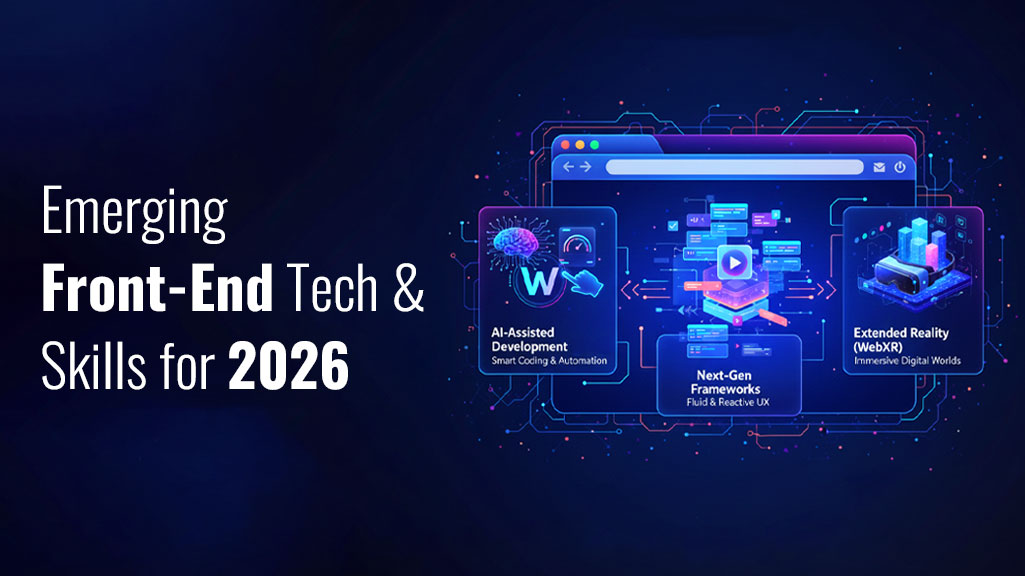In today’s digital era, a website’s success depends not just on its visual appeal but on the power of its underlying systems. While front end development focuses on design and user interaction, back end web development services form the foundation that ensures websites are fast, secure, and scalable. Without robust backend systems, even the most visually stunning websites can fail to deliver a seamless user experience.
This article explores how back end web development services work, the technologies involved, essential skills, and why they are critical for modern digital solutions.
What Are Back End Web Development Services?
Back end web development services focus on the server-side components of a website or web application. They handle everything behind the scenes: processing data, managing databases, securing sensitive information, and enabling smooth communication between servers and clients.
Unlike the front end, which users interact with directly, the backend ensures that actions like logging in, making a purchase, or streaming content work flawlessly. Companies offering professional back end web development services provide expertise in server logic, APIs, database management, and system security.
The Role of Back End Web Development in Modern Websites
Modern websites and applications are dynamic, handling complex user interactions and massive amounts of data. Back end web development services power this functionality in several ways:
- Data Management: Backend systems store, organize, and retrieve data efficiently. Databases such as MySQL, PostgreSQL, or MongoDB are commonly used by backend teams.
- Application Logic: Every action on a website like processing payments or authenticating users is managed by backend logic.
- API Integration: Backend developers create and manage APIs to connect different services, enabling smooth data exchange.
- Scalability: Backend systems are designed to handle growing traffic through load balancing, cloud solutions, and microservices architecture.
- Security: Data protection, encryption, and secure authentication are key responsibilities handled by backend developers within back end web development services.
By providing these services, businesses can ensure websites remain reliable, efficient, and secure under heavy usage.
Key Technologies in Back End Web Development Services
Backend development relies on a variety of programming languages, frameworks, and databases. Some of the most widely used technologies include:
- Programming Languages: Node.js, Python (Django, Flask), PHP (Laravel), Java (Spring), Ruby on Rails.
- Databases: MySQL, PostgreSQL, MongoDB, Firebase.
- Frameworks and Tools: Express.js, Django, Laravel, Docker, Git, CI/CD pipelines.
- Cloud Infrastructure: AWS, Google Cloud, Microsoft Azure, and serverless solutions for scalable deployment.
These tools allow backend teams to deliver high-quality, secure, and efficient back end web development services that meet the demands of modern websites.
Essential Skills for Backend Developers
Understanding the backend developer’s role and skills are crucial for businesses seeking professional back end web development services. Key skills include:
- Programming Expertise: Mastery of Node.js, Python, PHP, or Java.
- Database Management: Designing and optimizing relational and NoSQL databases.
- API Development: Creating RESTful or GraphQL APIs for seamless communication.
- Server Management: Knowledge of Linux servers, deployment environments, and performance optimization.
- Security Implementation: Familiarity with encryption, authentication, and vulnerability prevention.
- Problem Solving and Debugging: Troubleshooting performance issues and maintaining system reliability.
Backend developers with these can skills ensure that backend systems are robust, secure, and capable of handling high traffic and complex operations.
Core Responsibilities of Backend Developers
When hiring back end web development services, it is important to understand the backend developer job responsibilities:
- Server-Side Development: Writing code that connects databases, servers, and applications.
- Database Architecture: Creating efficient data models, relationships, and indexing strategies.
- API Development and Management: Building and maintaining secure APIs to facilitate communication between front end and backend systems.
- Performance Optimization: Monitoring and enhancing server speed using caching and load balancing techniques.
- Security and Maintenance: Regular updates, patching vulnerabilities, and ensuring the system remains secure against attacks.
A backend developer’s responsibilities are pivotal in delivering smooth, secure, and scalable web experiences.
Choosing the Right Back End Web Development Services
Selecting professional back end web development services is critical to a project’s success. Consider the following factors:
- Technical Expertise: A team should have experience with modern frameworks, databases, and cloud environments.
- Scalability: Services should provide architecture that can grow with your business.
- Security Focus: The provider should implement robust security measures to protect user and business data.
- Reliability: Backend services should ensure uptime, smooth performance, and minimal downtime.
By choosing expert back end web development services, businesses can ensure their websites are prepared for both current and future demands.
Hiring Remote Backend Developers
In recent years, businesses increasingly opt to hire remote back end developers to access global talent. Remote backend teams offer several advantages:
- Global Expertise: Access skilled developers worldwide.
- Flexibility: Hire developers for short-term projects or long-term engagements.
- Cost Efficiency: Reduce expenses related to office space, equipment, and full-time salaries.
- Continuous Productivity: Developers in different time zones can accelerate project timelines.
Remote backend developers, when selected carefully, deliver the same quality and reliability as in-house teams, making them an excellent choice for businesses seeking scalable back end web development services.
The Future of Back End Web Development
Backend development is constantly evolving, with trends like microservices, serverless computing, and AI-powered automation shaping the field.
- Microservices Architecture: Breaks applications into smaller, independent services for easier management and scalability.
- Serverless Computing: Reduces the need for manual server management and allows developers to focus on logic.
- AI and Automation: Predictive analytics and automated monitoring improve system reliability and performance.
Businesses leveraging these innovations in their back end web development services gain competitive advantages by delivering faster, more efficient, and secure websites.
Conclusion
The success of any website or web application depends on more than its design or visuals. Back end web development services provide the foundation for performance, security, scalability, and overall user experience.
From handling data to managing APIs, optimizing server performance, and ensuring robust security, backend systems are the invisible force driving modern digital platforms. Investing in expert back end web development services whether through in-house teams or remote specialists ensures businesses can deliver reliable and high-performing websites that meet the demands of today’s digital users.
By understanding the backend developer role and skills, job responsibilities, and technology stack, businesses can make informed decisions and build platforms capable of growth and innovation.








